Episodes
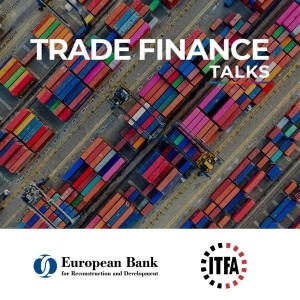
Wednesday Dec 15, 2021
Wednesday Dec 15, 2021
With global trade already back at pre-pandemic levels, it is tempting to say that the global economy has recovered from the COVID-19 pandemic, and that the worst of its upheavals are now behind us.
However, there are also signs that the rebound from the low baseline of the pandemic is losing momentum, as major economies battle the shared headwinds of persistently high inflation, supply chain disruption, labour shortages, and new COVID-19 restrictions.
To ponder what effect these dynamics have had - and will continue to have - on trade finance in emerging markets, there are few better observers to call on than Rudolf Putz.
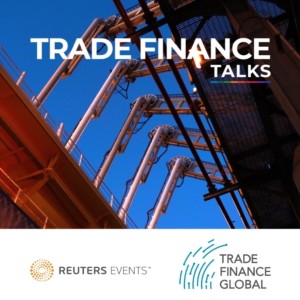
Monday Dec 06, 2021
Monday Dec 06, 2021
In the commodities super cycle that has emerged out of the COVID-19 pandemic, few resources have seen as much volatility as liquified natural gas (LNG).
From record lows to record highs in less than 18 months, LNG’s ups and downs are perhaps rivalled only by crude oil, whose 300% plunge to -$40 a barrel in April 2020 is one for the history books, and one for future economics students to ponder.
But unlike oil’s flash crash, LNG’s roller coaster has been a much more sustained affair, taking it from a pandemic low of $1.85 per million British thermal units (mmBtu) in May 2020, to almost $36 mmBtu today - an increase of more than 1,700%.
Full transcript here: https://www.tradefinanceglobal.com/posts/video-grappling-with-oversupply-decarbonisation-record-price-volatility-what-does-future-hold-for-lng/
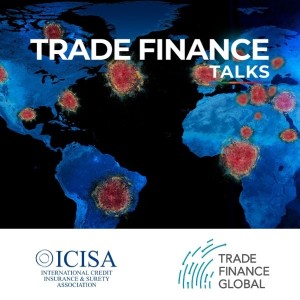
Wednesday Nov 24, 2021
Wednesday Nov 24, 2021
Like many products within trade finance, trade credit insurance has endured serious volatility during the last 12-18 months, thanks to the COVID-19 pandemic.
But while some products have struggled to bounce back - as evidenced by the growing trade finance gap - trade credit insurance has ultimately emerged from the pandemic stronger than before.
And perhaps one of the best witnesses to that recovery is Richard Wulff, executive director of the International Credit Insurance & Surety Association (ICISA).
Full transcript here: https://www.tradefinanceglobal.com/posts/podcast-s1-e75-u-shaped-recovery-icisas-richard-wulff-on-trade-credit-insurance-its-bounce-back-from-the-pandemic/(opens in a new tab)
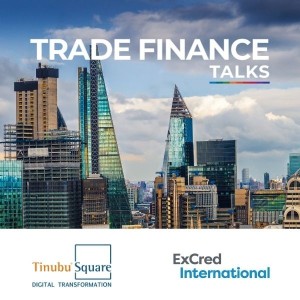
Monday Nov 22, 2021
Monday Nov 22, 2021
As the trade finance industry shifts towards more digitalised ways of doing business, new niches are opening up within the market.
One such niche can be found in digitalised trade credit insurance and surety markets, of which one of the largest players is Tinubu Square.
Tinubu Square considers itself the leading B2B software-as-a-service (SaaS) provider for trade-related speciality insurance, namely credit insurance with short-term, medium-term, and political risk, bonds and surety, working with 60 insurers, 218 brokers and over 1000 obligees based around the world.
Full transcript here: https://www.tradefinanceglobal.com/posts/podcast-s1-ep74-getting-saas-into-surety-and-credit-insurance-tinubus-co-founder-talks-insurtech/
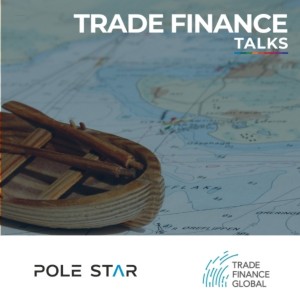
Monday Nov 01, 2021
Monday Nov 01, 2021
On the eve of COP26 - the biggest climate summit of the year - the world is more focused than ever on reducing carbon emissions, and on the role that individual companies can play in tackling climate change.
Starting this Sunday, COP26 will be the first UN climate conference since the publication of its landmark Intergovernmental Panel on Climate Change (IPCC) report in August this year.
Full transcript here: https://www.tradefinanceglobal.com/posts/podcast-s1-ep73-pole-star-carbonchain-partnership-delivers-single-service-sustainability-compliance-solution/
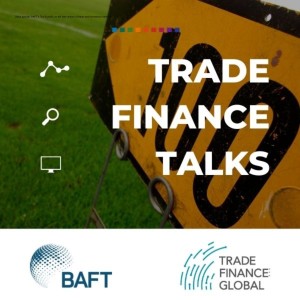
Tuesday Oct 19, 2021
Tuesday Oct 19, 2021
We have just finished the marathon, that is SIBOS Virtual, a festival of trade, treasury and payments. So what better way to celebrate, than to be joined by the CEO of the Banks Association for Financing Trade (or BAFT), Tod Burwell.
Full transcript here: https://www.tradefinanceglobal.com/posts/podcast-s1-ep72-sibos-special-bafts-tod-burwell-on-last-century-of-trade-transaction-banking/
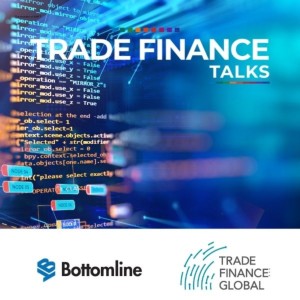
Thursday Oct 14, 2021
Thursday Oct 14, 2021
Today we’re talking about messaging. I’m sure we all have messaged before, humans might use whatsapp or messenger. Computers might use application programming interfaces, or APIs. Dogs bark at each other, dolphins message through using soundwaves. But what about banks? How do banks message one another?
Often banks need to talk to each other, confirming beneficiaries, recipients, payment amounts, and details of goods and services of their clients and transactions. SWIFT is the financial industry’s neutral and trusted infrastructure provider, and is still moving towards the creation of frictionless instant payments in an ever-changing and complex environment. Today, we’re talking about the evolution of SWIFT.
How has SWIFT changed, what challenges have they faced and how will they continue reinventing themselves in the highly competitive global payments market?
To help me answer these questions, I’m delighted to be joined by Marcus Hughes, Head of Strategic Business Development at Bottomline.
Full transcript here: https://www.tradefinanceglobal.com/posts/podcast-s1-ep71-evolution-of-swift/
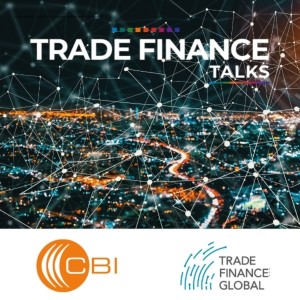
Wednesday Oct 06, 2021
Wednesday Oct 06, 2021
The current banking landscape is going through a makeover. PSD2 and open banking has it’s advantages, but there are also many opportunities to continue to level the playing field, share risks and revisit the rules.
The Pandemic has driven the acceleration of open banking, from automatic IBAN and Identifier checking, to increased partnerships via APIs.
Today, discussing, the importance of open banking ecosystems and the need for global digital transformation, I’m joined by Industry expert Liliana Fratini Passi, Managing Director at CBI and Vice Chair of UN/CEFACT.
Read the full transcript here: https://www.tradefinanceglobal.com/posts/podcast-s1-ep70-italy-perspective-future-of-open-banking-automatic-iban-psd2-apis/
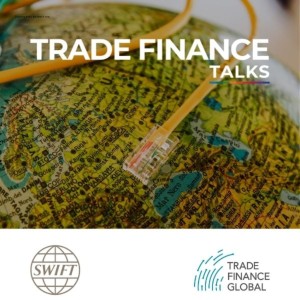
Wednesday Sep 29, 2021
Wednesday Sep 29, 2021
World trade is central to economic growth and as we emerge from the pandemic, trade is paramount in enabling the global economy to recover.
We’ve discussed trade digitisation and its many facets for some time now, but the pandemic has now rendered this critical, potentially a tipping point for scalable progress in digitisation.
But it’s not easy. Digitising a complex ecosystem involving myriad actors, rules and regulations, sprawled across both physical and financial supply chains in multiple countries and industries is a challenge.
Today, discussing, legal harmonisation, Richer data and standards and interoperability, I’m joined by Industry leader and one of TFG’s Women in Trade, Louise Taylor Digby, Head of Trade Strategy at SWIFT.Full transcript: https://www.tradefinanceglobal.com/posts/podcast-s1-ep69-digitising-trade-the-time-is-now/
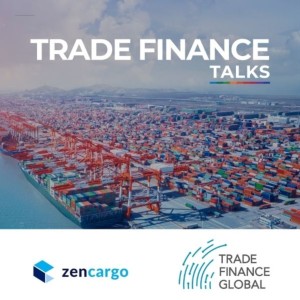
Wednesday Sep 08, 2021
Wednesday Sep 08, 2021
Global supply chains have been and continue to be deeply impacted by the changes that have taken place in the last 12 months. From the Suez canal debacle which showed just how interconnected global supply chains truly are, to the current shortage of HGV drivers in the UK which poses a serious threat to supply lines to schools and hospitals, it is fair to say that the industry is, currently, facing significant challenges.
Is the industry at a breaking point? And what can we learn from these challenges? To help me explore these questions I have Sam Greenhalgh, UK Sales Director at Zencargo!
Full transcript: https://www.tradefinanceglobal.com/posts/podcast-s1-ep68-freight-crisis-hgv-driver-shortage-shipping-blockages-and-the-digital-future-of-freight/






